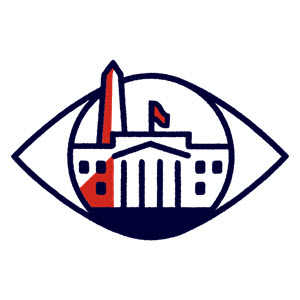IRS Guidance on De Minimis Error Safe Harbor for Form W-2 Corrections

On January 4, 2017, the Internal Revenue Service (IRS) issued Notice 2017-09 to provide guidance concerning handling of Forms W-2 and 1099 corrections when amounts reported are incorrect by no more than $100 (or $25 in the case of tax withheld). The new guidance applies to information returns filed and/or furnished after December 31, 2016 (i.e., including 2016 Forms W-2).
However, the Notice warns that not correcting amounts that fall under the de minimis threshold could cause problems. The IRS will also release more detailed regulations in the future. Consequently, employers may wish to take a cautious approach, and consult with appropriate legal and tax professionals before making any changes.
Background
The Protecting Americans from Tax Hikes Act of 2015 (P.L. 114-113) (PATH Act) established a "de minimis error safe harbor" from information reporting penalties under Internal Revenue Code Sections 6721 and 6722. Such penalties apply for failure to file correct information returns and/or failure to furnish correct payee statements. Under the PATH Act safe harbor, an error on an information return or payee statement is not required to be corrected, and no penalty is imposed, if the error relates to an incorrect dollar amount and the error differs from the correct amount by no more than $100 ($25 in the case of an error with respect to an amount of tax withheld).
However, a payee may elect to have the safe harbor not apply. If they do so, the payer may be subject to penalties for an incorrect dollar amount appearing on an information return or payee statement even if the incorrect amount is a de minimis error.
Employee Election
The PATH Act provides that a payee may elect to receive a corrected information return (e.g., Forms W-2, 1099, etc.), even if the error is under the $100 threshold ($25 for amounts withheld). If an employee makes such an election, the employer must provide a corrected Form W-2 within 30 days of the date of the election to avoid any Section 6721 and/or 6722 penalties.
An employer may establish any reasonable manner for making the election, including in writing, electronically, or by phone, but the employer must notify the employee in writing how to make the election. If an electronic option is offered, it cannot be the only way to make the election.
The IRS Notice reserved for later guidance any specific requirements by which employers would need to notify employees of a relevant opportunity to make such an election. Practically speaking, offering such an election may need to include detailed information for affected employees, including information about an error discovered in the employee's Form W-2, and the amounts in question and amounts by which they are incorrect. Employees will need such details in order to understand their options and judge whether they prefer to receive a corrected information return.
Alternatively, employers may be able to include a general statement with other information provided to employees (such as annual reminders related to payroll administration and/or tax statements), explaining that de minimis errors will not be corrected unless the employee elects otherwise. Future IRS guidance will identify any permissible approaches.
A payee may make such an election at any time during the year in which the statement is required to be furnished (for example, a payee making an election on June 15, 2017, may make an election with respect to payee statements required to be furnished in calendar year 2017, such as a 2016 Form W-2). A payee may also provide that their election applies to future years, and may revoke an election at any time by providing a written notice of revocation.
If a person does not specify the type of form to which the election applies and/or whether the election applies only to that year, the payor must treat the election as applying to all applicable payee statements and any succeeding years.
Employers must retain records of any election (or revocation), for as long as that information may be relevant to the administration of any internal revenue law. Thus, employers who wish to take advantage of the safe harbor rule should keep careful records of employee elections.
Potential Impact of Not Making Form W-2 Corrections Under the De Minimis Safe Harbor
The PATH Act provision has no effect on the requirement to pay and report employment taxes via Form 941. Consequently, if errors occur resulting in tax underpayments, the additional tax must still be paid and reported, even if the amounts related to individual payees are under the de minimis amounts.
The IRS maintains a "Combined Annual Wage Reporting" (CAWR) program to ensure that employers have paid and reported the proper amount of taxes. The CAWR program compares the employment taxes reported on Form 941 (Employer's Quarterly Federal Tax Return) to the amounts reported to SSA via Forms W-2 and W-3. If amounts are paid and reported on Form 941 but the corresponding amounts are not corrected on Forms W-2, discrepancies may result and employers may receive CAWR notices. Consequently, the IRS encourages employers to correct any errors on Forms W-2 and W2-c, even those that are less than the de minimis amounts.
Safe Harbor Only Applies to Inadvertent Errors, and Not to Failures to File or Furnish
A payor that intentionally misreports a dollar amount on an information return or payee statement may be penalized, even if the amount otherwise qualifies as de minimis. The safe harbor also does not apply to a failure to file or furnish, even if the payee statement or information return would report dollar amounts of $100 or less (or $25 or less with respect to tax withheld).
Further Regulations Are Expected
The IRS Notice explains that Treasury and IRS intend to issue further regulations to implement the de minimis error safe harbor and the payee election to have the safe harbor not apply. The IRS has advised that the regulations will likely address requirements for payors to notify payees regarding de minimis errors; how to make an election, and provisions to prevent abuse of the safe harbor.
Impact to State and Local Tax Reporting Obligations
Although not addressed in the IRS Notice, the PATH Act provision has no effect on state and/or local requirements for information return reporting, or payment requirements. Payers should refer to the respective state or local tax authorities for guidance, but generally there are no de minimis thresholds below which corrections are not required.
Effective Date
These provisions are effective for information returns required to be filed and payee statements required to be furnished after December 31, 2016. However, given the substance of the IRS notice and the prospect of further guidance, employers may wish to take a cautious approach, and consult with appropriate legal and tax professionals.
For details, see www.irs.gov/pub/irs-drop/n-17-09.pdf
ADP Compliance Resources
ADP maintains a staff of dedicated professionals who carefully monitor federal and state legislative and regulatory measures affecting employment-related human resource, payroll, tax and benefits administration, and help ensure that ADP systems are updated as relevant laws evolve. For the latest on how federal and state tax law changes may impact your business, visit the ADP Eye on Washington Web page located at www.adp.com/regulatorynews.
ADP is committed to assisting businesses with increased compliance requirements resulting from rapidly evolving legislation. Our goal is to help minimize your administrative burden across the entire spectrum of employment-related payroll, tax, HR and benefits, so that you can focus on running your business. This information is provided as a courtesy to assist in your understanding of the impact of certain regulatory requirements and should not be construed as tax or legal advice. Such information is by nature subject to revision and may not be the most current information available. ADP encourages readers to consult with appropriate legal and/or tax advisors. Please be advised that calls to and from ADP may be monitored or recorded.
If you have any questions regarding our services, please call 855-466-0790.
ADP, LLC.
One ADP Boulevard,
Roseland, NJ 07068
Updated on January 10, 2017



